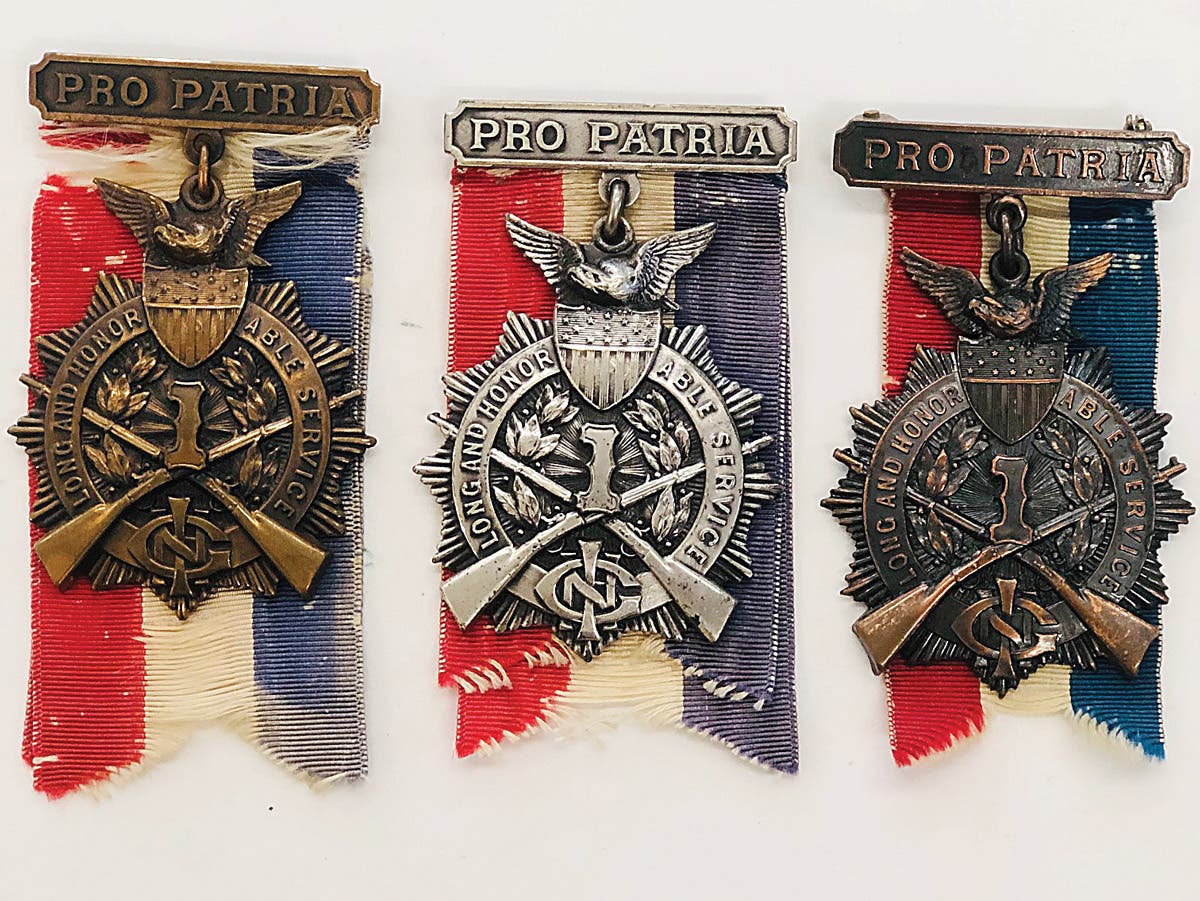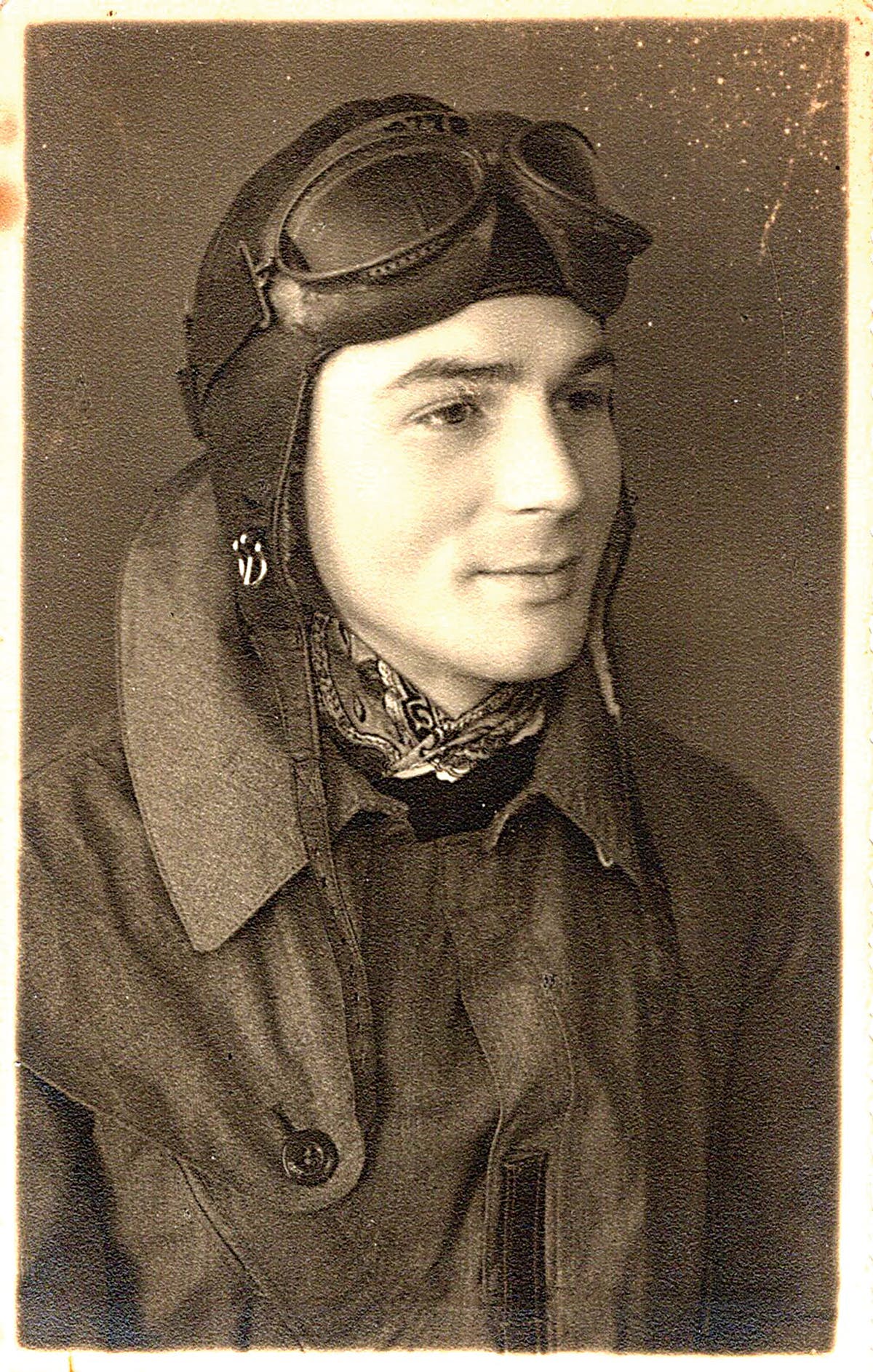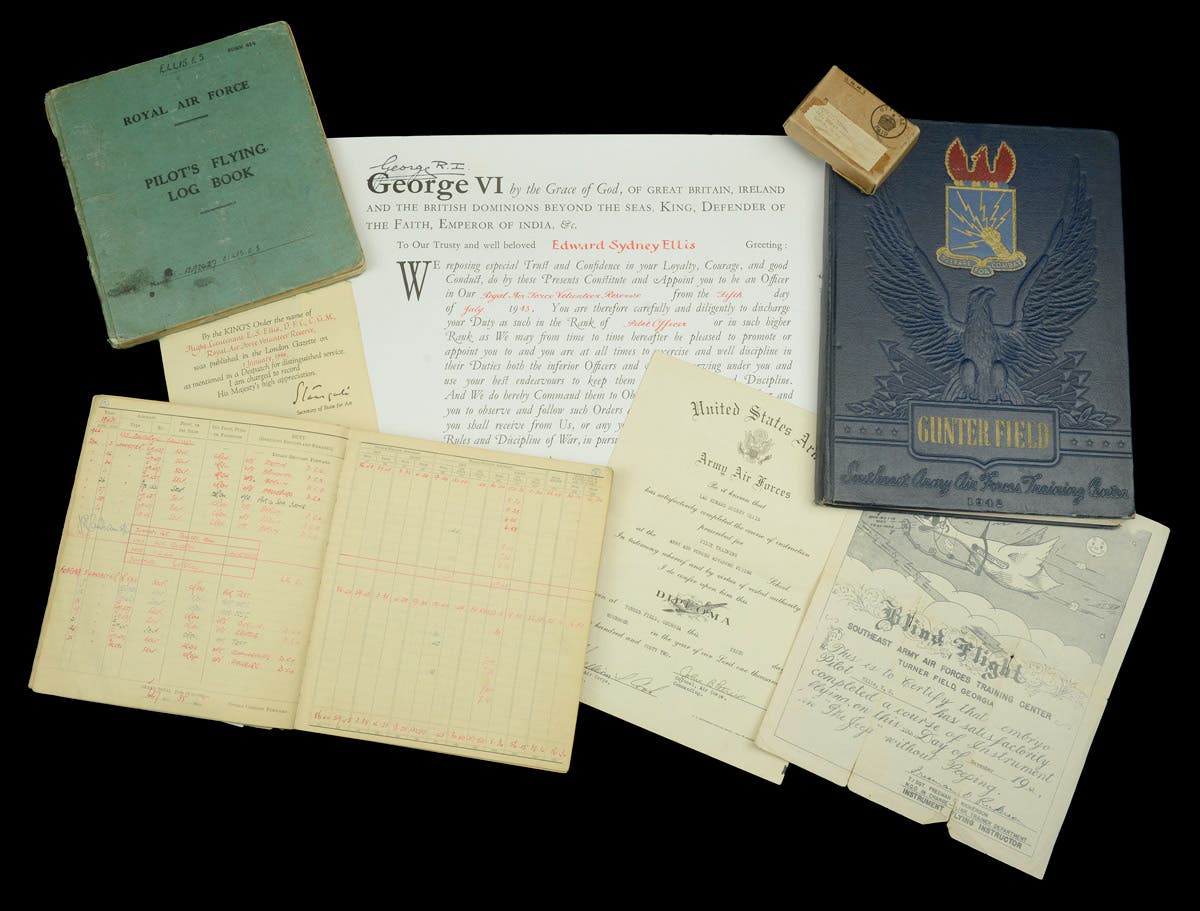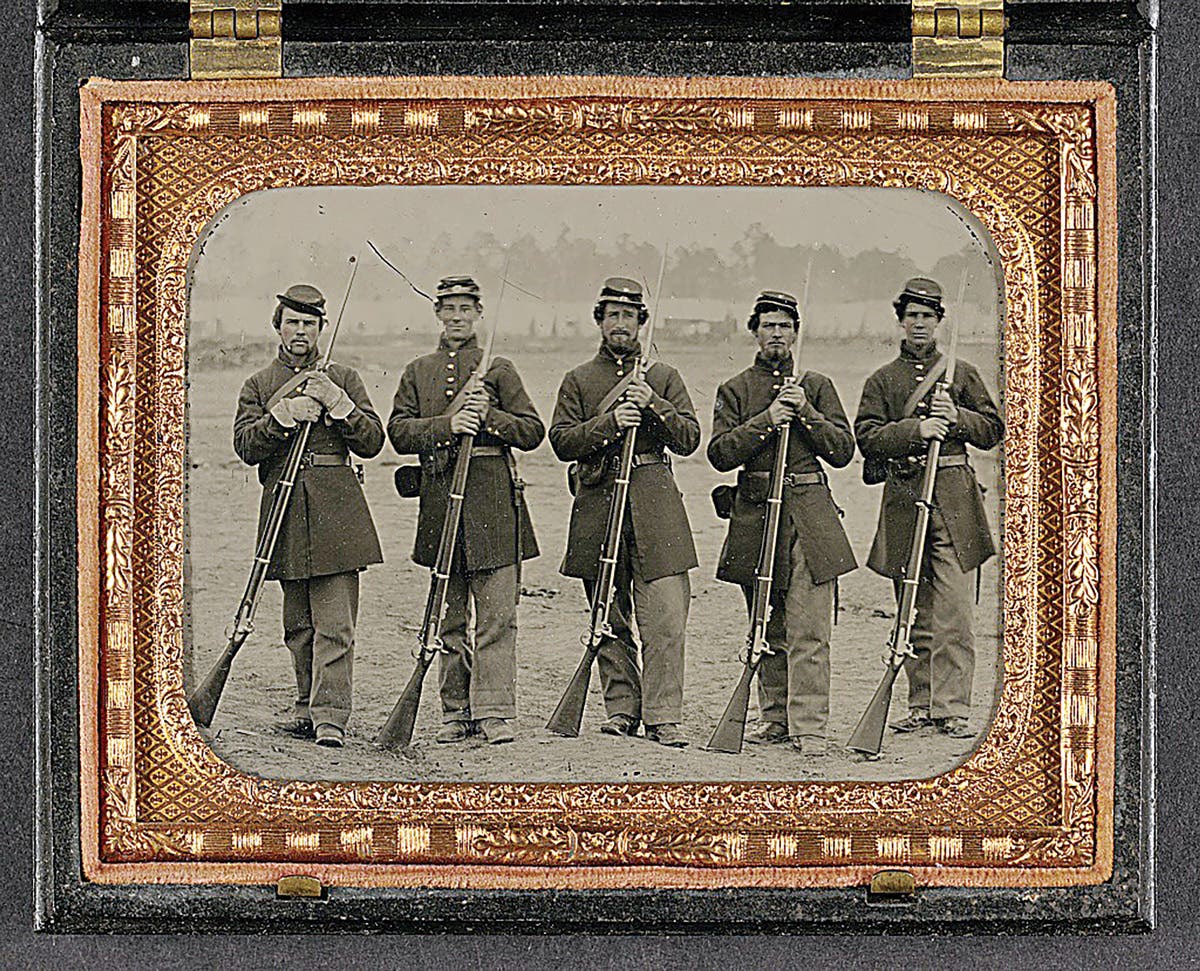Favorite Find: 90th Division Grouping
The collecting bug often strikes while one is in their youth. I started collecting in my early teens. For me, serious collecting began later in life when I could afford…
The collecting bug often strikes while one is in their youth. I started collecting in my early teens. For me, serious collecting began later in life when I could afford a more intense collection.
As a teen, I often helped a neighbor, Robert F. Goron. He was a noted Pittsburgh horticulturist and also owned a historically significant farmhouse. He would open his gardens as well as his meticulously restored historic home to various civic groups. In cutting his grass and delivering his daily paper over several years, we would often talk about my military interest. One day, he gave me a liberated ten-foot Nazi banner (which I still have).
Time moved on. More than40 years later, I was reading a local paper and saw an estate sale for this old neighbor. Knowing he served in WWII, I immediately went to the house sale and found his military bag and Ike Jacket. I did not see any medals, so I asked a relative if there were any in the sale. She told me she had them at her home and was preparing to move out of state. Fortunately, she remembered my twin brother and me as being part of the old neighborhood. Shewas willing to give me the medals because I had known Mr. Goron. She felt the medals would havemeaning to me as opposed to a stranger.
Several days later, I visited her. She had collected all his items which includedmedals, campaign ribbons, insignia, collar brass and Combat Infantryman Badges.
A D-DAY AND BULGE VETERAN
Robert F. Goron had been a Technician Fifth Grade with the Headquarters Company, 3rd Battalion 357th Infantry Regiment of the 90th Division.
To me, what was more significant than the medals I received, but rather, his relative included his honorable discharge papers and a 14-page record typed on legal size paper. These documents showed that Goron had boarded the ship Bienville on June 4, 1944, and was moving to Beachhead France (Utah Green) where he landed on June 8, 1944.
Robert was a company clerk who faithfully typed the unit’s location for each day up to January 6, 1945, when they crossed into Germany, Then,the typed records became more detailed actually indicating daily activities.
Part of the notes Goron typed for March 24, 1945, state, “Left assembly area at 1700 on foot. Approx 3 mi to Rhine River passing through Nierstein at 1800. Arr at Rhine River 1825. Was ferried across river by US Navy rafts and motor boats & reached opposite banks at 1830. In assembly area strafed by enemy planes (4) at 1840. No casualties suffered. Marched some 6-7 miles to pres pos. arr 2100. Shelled upon arrival. Casualties suffered.”
Many entries were more light-hearted as typed on May 7,1945, “Ustalec, Czechoslovakia: Weather: Sunny and warm. Rumors of Peace. Waiting for official confirmation. People friendly — Waving and giving us food. People we are billeted with are grand to us having fixed food for all of us.”
Two days later, on May 9, 1945, Goron received a Bronze Arrowhead. This ribbon device was given to officers and enlisted men who were members of units who landed in Normandy June 6-9, 1944.
While Robert’s grouping is typical of many WWII veterans, I treasure the memory of Robert and often think of him as I pass his historic farmhouse — one of five structures in Pittsburgh standing since 1816.
Because he typed a record of his unit’s movements as part of headquarters clerk’s duties, I am able to follow his unit across France until finally ending their mission in Czechoslovakia. It is a fitting tribute to Robert and the many men of that generation who fought for our freedom and helped end the scourge of the Third Reich.
While this “Favorite Find” may not be especially valuable, it does preserve the memory of a friend and captures a true wartime record that would have been lost, if not for the interest and efforts of a military collector.
*As an Amazon Associate, Military Trader / Military Vehicles earns from qualifying purchases.
David Burrows is a retired educator and life long military collector. He started collecting as a teenager. David was a physics teacher for 37 years with the Pittsburgh Public schools. He is a frequent contributor to Military Trader as well as the OMSA Journal. His other passion with British cars has resulted in many feature stories both in US publications as well as international publications over the last 30 years.








